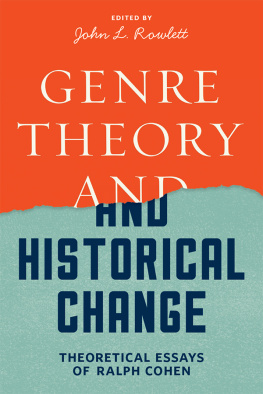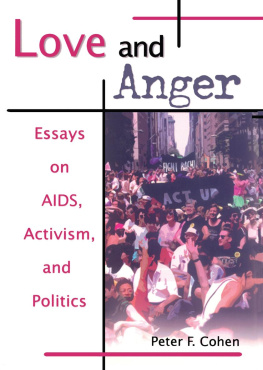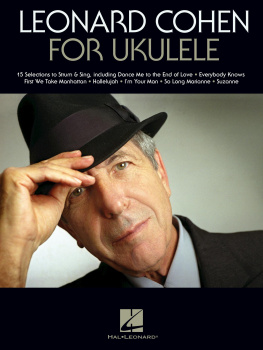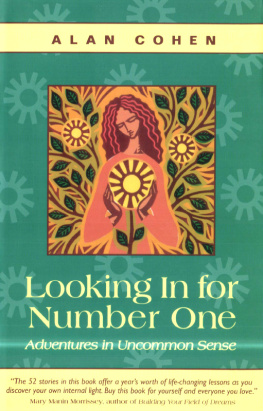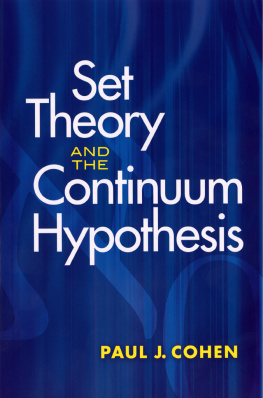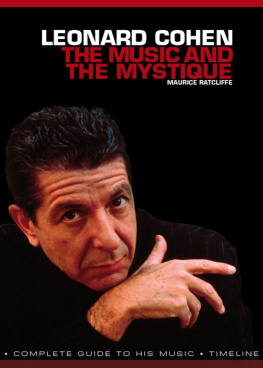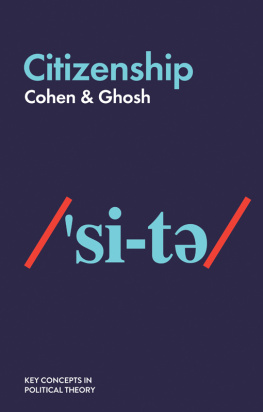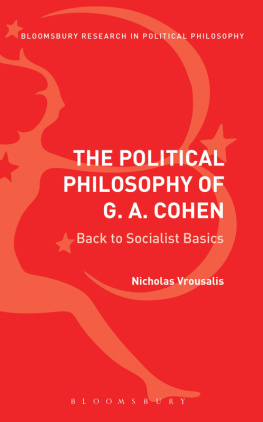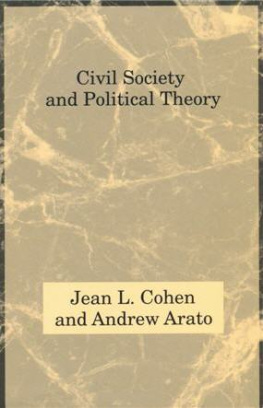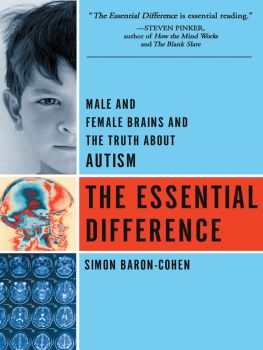Acknowledgments
It is only fitting that I acknowledge my gratitude, first and foremost, to the late Ralph Cohen for his seminal contributions to literary history, his vision of education, his immensely stimulating presence for more than forty years at the University of Virginia, andas teacher, mentor, colleague, and friendfor his exhilarating influence on my life as scholar and editor. This collection of his essays, part of a much larger editing project that involved preparing all of the 120 or so Cohen papers, was begun years before its completion and was being read at the Press during Ralphs final days, a fact that in no way suggests his sanctioning its appearance. At the source of his reluctance to review and collect his previously written papers was an indifference to anything but their expansive implications and releasing possibilities for other scholars; were his own papers of lasting value, their constructional procedures would be evident in the extensive writing of those he was reading. This indifference left his impatient life partner in a state of unresolved provocation. Yet had they lived to see this selection of his literary histories collected, I trust Ralph would have been pleasantly surprised, Libby surely elated.
I wish to thank Rita Felski for encouraging my early efforts, for some shrewd and judicious emendations, and for saving me from becoming too personal in my writing about Ralph. I thank Cliff Siskin, Larry Burton, and Michael Prince for their longtime support of collecting Ralphs papers and for their generous friendship. As Director of the School of Writing, Rhetoric, and Technical Communication at James Madison University, and later as Director of the Cohen Center for the Study of Technological Humanism, Larry kindly made available facilities for the transcription into editable form of Ralphs previously published papers. Herbert Tucker, Jerome McGann, Stephen Arata, Walter Jost, Alison Booth, James and Marcia Childress, and David Morris supported this effort in a variety of valuable ways, each with Ralphs best interest in mind. Im sure they recognize that he must have hoped this assemblage of essays would defeat, while not disappointing, their expectations.
My insightful editor Eric Brandt has been unobtrusively helpful, and I thank him for the liberty he has given me to shape this manuscript. I also wish to credit my two outside readers with making useful suggestions. Project editor Morgan Myers directed a smooth editing process, and managing editor Ellen Satrom exercised uncommon prescience in selecting Ruth Melville to copyedit the manuscript. My debt to Ruth is more than considerable and her service to the reader cannot be overstated.
My most demanding and perspicacious reader has been my friend and Cohen student Jeffrey Plank, who cast a keen editorial eye over several versions of the introduction and delivered me from infelicities and indiscretion. My wife, Abbie, remains the touchstone of my taste and the foundation of my abiding continuity over the many years of grappling with Ralphs thinking and withstanding Libbys free spirit. Without her I could not have brought this to a close.
On the Interrelations of Eighteenth-Century Literary Forms
I. THE HISTORICAL BACKGROUND
Modern critics, in discussing neoclassical genres, have insisted on the rigidity of forms, while acknowledging that eighteenth-century critics disagreed about and poets seemed to diverge from this rigidity. Austin Warren wrote: That genres are distinctand also should be kept distinctis a general article of Neo-Classical faith. But if we look to Neo-Classical criticism for definition of genre or method of distinguishing genre from genre, we find little consistency or even awareness of the need for a rationale.
Oliver F. Sigworth wrote that at the center of neoclassic criticism is the conception of genre, of literary works existing as species in an absolute sense. Each genre had its own rules, its own (to use the proper term) decorum, which extended not only to matters of form and structurematters which we still vaguely understandbut also to verse and diction.
This essay was originally published in New Approaches to Eighteenth-Century Literature, Selected Papers from the English Institute, ed. Phillip Harth (New York: Columbia Univ. Press, 1974), 3378, and is reprinted with permission of the publisher.
These critics posit the distinctiveness of the kinds, although some treat them as metaphysical absolutes, whereas others find them governed by rules and decorum. They recognize that although eighteenth-century critics do not always agree on the rules or the decorum of specific kinds, they do agree that distinct kinds exist, common responses to which are the result of shared beliefs in a general human nature. Each kind has its own specific effectthe single pointedness of epigram, the sweet communication of loss in elegy, the artful delivery of precepts in didactic poetry, the moral end of drama. The means by which the effects were achieved included subject (theme, fable, thought, sentiments, speaker), language (diction, imagery, rhetorical figures), style (sublime, low, etc.), and meter. Irne Simon puts it this way: When approaching any poem the critic would first ask himself to what genre the work belonged, what instruction it intended to convey, whether the plot and characters did convey it, whether the design of the poem and the characters were such that nature was imitated all through, whether the style was suitable to the characters and to the sentiments they expressed, etc. Any critical examination would therefore consider in turn: the fable, the manners (i.e. the characters), the sentiments, the diction and the metre.
My argument is that these critics are mistaken. They are mistaken in assuming that the distinctiveness of kinds was agreed upon; they are mistaken in assuming that the rules specified the kinds; they are mistaken in assuming that each kind was bound to a clearly defined specific effect. Rather, the poetic kinds were identified in terms of a hierarchy that may not have been all-inclusive (since not all possible forms were specified) but were all interrelated. And this hierarchy can be seen in terms of the inclusion of lower forms into higherthe epigram into satire, georgic, epic; the ode into epic; the sonnet into drama; the proverb into all preceptive forms. Edward Phillips refers to this hierarchy as the Epic, the Dramatic, the Lyric, the Elegiac, the Epoenetic, the Bucolic, or the Epigramin them the whole circuit of Poetic design is one way or other included. For Phillips the epigram is the fag end
The critics argued that, although each form had its own effect, it was, either in terms of its parts or as a whole, interrelated with other forms. Some types of poems were mixtures to begin with: Dryden pointed out that Varronian satire was a mixture of several sorts of verse and was also mixed with prose; moreover, these poems had various subjects. In praising the proper satirethat of Boileauhe describes it as the majesty of the heroic, finely mixed with the venom of the other. And he refers to satire as a species of heroic poetry.
The theory of interrelation of forms had been inherited from Renaissance critics such as Minturno, Patrizzi, and others. Sir Philip Sidney had noted in his Apology: Now in his parts, kindes, or Species (as you list to terme them), it is to be noted that some Poesies have coupled together two or three kindes, as Tragicall and Comicall, wher-upon is risen the Tragi-comicall. Some in the like manner have mingled Prose and Verse, as Sanazzar and Boetius. Some have mingled matters Heroicall and Pastorall. But that commeth all to one in this question, for, if severed they be good, the conjunction cannot be hurtfull.
The mingling of different matters within the heroic poem was only one of the very many ways in which Renaissance critics saw the forms as interrelated. Rosalie Colie has remarked that in the Renaissance a rigid system of genres never existed in practice and barely even in theory. We have been looking at far too many examples of works that involve mixed kind rather than a specific single kind to accept any such rule.
Next page
